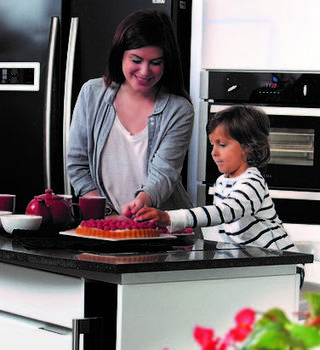Self-Control
Chores Can Help With Coping and Resilience
For parents and kids, quarantine is a chance to strengthen self-regulation.
Posted May 13, 2020

For most parents, this is a time of chaos, challenge, and unpredictability. Every family is feeling this in their own way, with fears invading every area of their lives—health, financial security, psychological well-being, and relationships.
For most parents I know, just managing daily life has become a struggle. For kids, there are unspoken worries that are resulting in tantrums, demands, and other regression behaviors that sometimes surprise their parents.
Liliana Lengua is a professor of psychology at the University of Washington known for her research on adversity, resilience, and self-regulation. She and her colleagues recently published a study that examined the effects of adversity on young children’s development. They demonstrated the ways that early adversity disrupts children’s attention, stress hormones, and adjustment. It is not surprising that children experiencing adversity—as so many children are now—can have a harder time with self-regulation and social-emotional well-being.
Self-regulation is the ability to manage one’s responses to circumstances and situations. Good self-regulators remain calm when challenged. They retain their capacity to respond intelligently, wisely, and well, to whatever situation presents itself. COVID-19 is giving us all a chance to monitor and strengthen our self-regulation habits, as we support the young people in our lives in acquiring those skills.
Michael Ungar is a professor of social work at Dalhousie University in Halifax known for his international research studies on resilience, and he has written several good-humored and good-natured articles about surviving COVID-19 with kids. He recommends that parents look for ways to use household chores to help kids learn academic skills at the same time as they acquire the self-regulation skills they need to survive these stressful times. He argues quite persuasively that having responsibility for chores can support kids’ cognitive, emotional, physical, and social development at the same time as they help their parents cope with COVID-19. A solid win-win.
Here are some ideas for supporting your child’s ability to regulate their emotional and behavioral responses to the inevitable stressors of this time of uncertainty and fear:
- It starts with you. Take a deep breath. Take another. Get enough sleep and exercise. Eat nutritious meals. Do your best to regulate your own emotions and behaviors.
- Be patient. More than ever, your child needs you to be kind, supportive, nurturing, and understanding.
- Give your child special chores. At times of vulnerability, children can feel particularly powerless. Look for ways your child can make a real contribution to the household. You can tell them you need help with laundry or cooking right now because you’re extra worried. By helping out in a real way, your child will feel less powerless.
- Give your child active chores. Physical activity can help with stress reduction and self-regulation. Think about ways your child can help with physically active chores, including helping with the garbage, making beds, vacuuming, sweeping the kitchen, scrubbing floors, gardening tasks, washing the car.
- Chores can provide the comfort of the ordinary. All children benefit from routines they can trust, but reliable routines are particularly important at a time like this. Regular family routines—meals, chores, schedules—provide a sense of control and trust in a world that often feels chaotic and unpredictable.
- Turn daily chores into opportunities for play. Play and playfulness have more to do with attitude than with specific kinds of activity. With a dash of good humor, making a meal, cleaning up the house, or taking out the garbage can be fun. If you’re just too tired or flat-feeling to make that happen, ask your child for help.
In addition to helping children cope with stress and acquire self-regulation skills, chores can help kids develop competence, a sense of responsibility, self-esteem, confidence, happiness, empathy, psychological adjustment, family connection, kindness, gratitude, and mindfulness. Now more than ever, it’s time to strengthen your self-regulation skills and support your child in developing theirs.
More on Chores and Self-Regulation
- More Chores, Less Play: Teaching Children Self-Regulation, by Michael Ungar
- Adversity Can Affect Child Self-Regulation and Resilience, by Liliana Lengua
- Children, Chores, and Happy Productivity, by Dona Matthews


